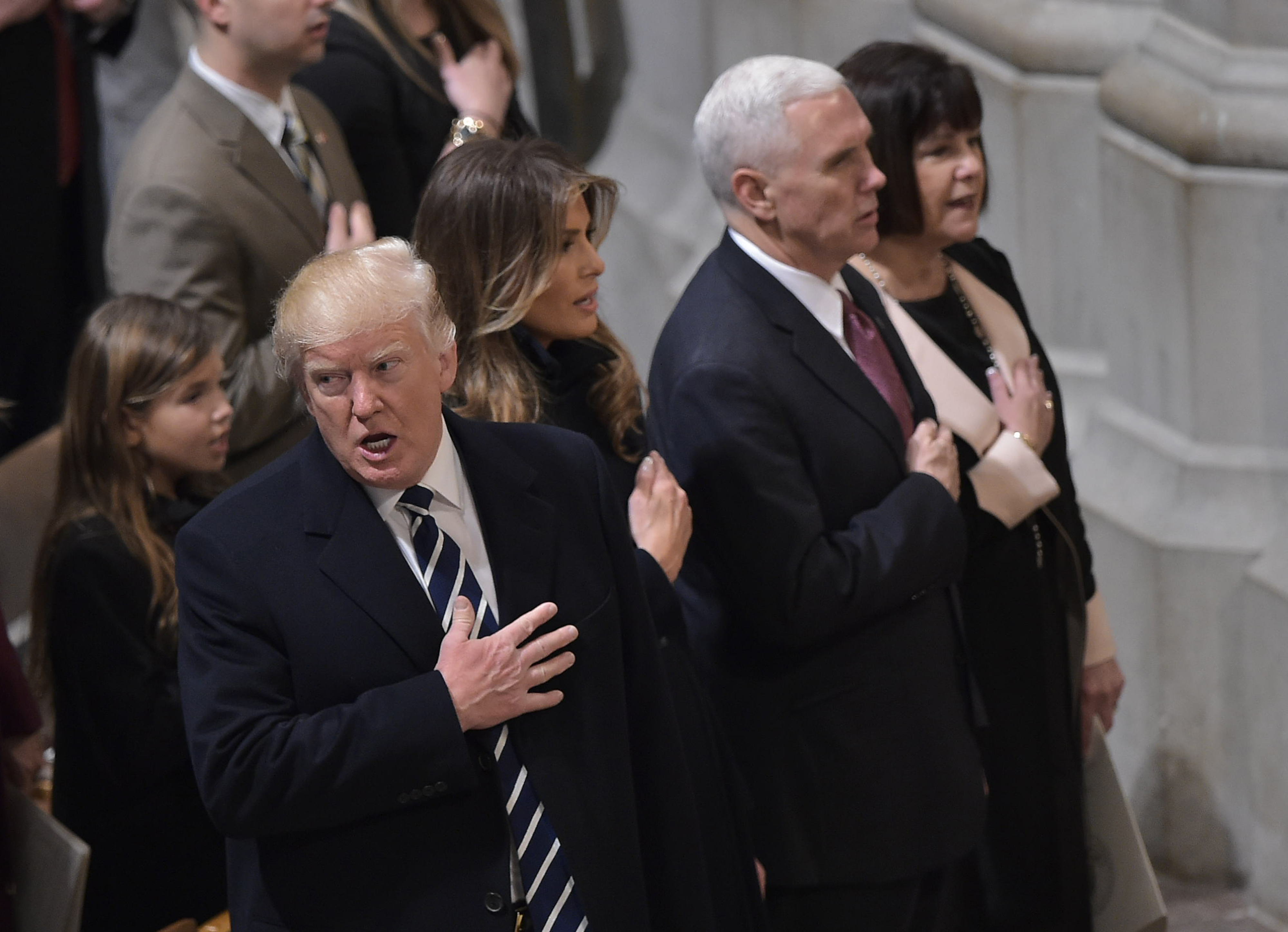Andrew Snelling is a geologist with 45 years’ experience in “theoretical and practical geological research,” according to the complaint he just filed in federal court in Arizona. He brings that expertise to bear in the field of Christian apologetics. That is to say, in attempting to prove the Bible’s literal accuracy.
Snelling is suing the Department of the Interior after encountering what he felt were undue difficulties securing a research permit to study sites within Grand Canyon National Park and remove samples. Per his complaint, one academic reviewer described Snelling’s research proposal as “outlandish.” Another characterized it as “dead-end creationist material.” Now, with the help of the Alliance Defending Freedom, Snelling has charged the Park Service with violating his constitutional rights, a federal statute, and President Donald Trump’s recent religious liberties executive order.
Religious freedom is meant to protect religious minorities from persecution. Republicans have transformed it into a cudgel against policies intended to protect other disempowered groups.
The ADF claims 49 Supreme Court wins and asserts an overall win rate of 80 percent. This success rate is suspect—the ADF counts out-of-court victories through advocacy and legal settlements as wins—but the group’s influence is indisputable. With an annual budget approaching $40 million and 50 staff attorneys, the ADF is the right’s answer to the American Civil Liberties Union, by its own account. The ADF has led the way on religious liberty cases, from Snelling’s suit to corporations seeking exemptions from contraceptive mandates and non-discrimination laws.
The religious right has weaponized faith through law. Snelling’s suit represents the ADF’s latest effort to expand the legal privileges rooted in religious liberty, which have grown exponentially since conservatives began using RFRA to attack social policy. The panoply of rights grounded in religious liberty will likely continue growing via legislation and executive action, to be sure, but most significantly through the courts, now that Justice Neil Gorsuch is on the bench and Justice Anthony Kennedy has one foot out the door. The next big ruling could come as soon as May or June.

The religious right has spent two decades inverting the concept of religious liberty. Rather than a negative right, the right to practice religion free of interference, they seek affirmation of a positive right, the right to interfere with others based on religious precepts. It is a multi-front war.
Republicans in Congress will soon reintroduce the First Amendment Defense Act, a legislative molotov (or mazel tov, as Trump surrogate Scottie Nell Hughes would say) cocktail that would bar the federal government from penalizing individuals for acting on the belief that marriage should be limited to one man and one woman—or that sex should be limited to marriage. To flip the phrasing, it would enshrine a right to discriminate against gays and lesbians, among others.

(Photo: Mandel Ngan/AFP/Getty Images)
From the White House, Trump has issued an executive order giving Attorney General Jeff Sessions carte blanche to set policy on religious freedom throughout federal government. Symbolically troubling, this action is nonetheless contained: The executive changes policy only within the federal government and for interactions with the federal government, with regard to benefits and enforcement. Of greater concern is what is happening in the third branch: the judiciary.
The courts can check the executive, the legislature, states, and even individuals. Judges and justices decide how far Congress’ legislation can go and even what states may and may not do. To succeed in federal court may only require persuading one or two judges, at the trial and appellate levels, or the biggest plurality of nine at the Supreme Court, as opposed to a congressional majority. Certain districts and circuits lean liberal or conservative, letting advocates pick forums strategically. And court wins can be big—bigger, even, than legislation.
Take, for example, the Supreme Court’s current religious exercise case, Trinity Lutheran Church of Columbia v. Comer. Until recently, the Missouri constitution, like those of 35 other states, barred the state from funding religious institutions. As a result, Trinity Lutheran was denied a grant to resurface its school’s playground. Although Missouri changed its position to permit religious organizations to receive public funds for secular purposes, the Supreme Court heard the case.
The best scenario, and perhaps the most likely, is that the Court OKs Missouri’s new policy in the narrowest terms possible. This is more or less where the Court seemed headed with Zelman v. Simmons-Harris, a 2002 case in which the Supreme Court upheld a Ohio school voucher program through which parents could opt to send students to religiously affiliated schools.
The alternatives are grim. The Court could find that denying a church funding that’s available to other non-religious institutions would burden the First Amendment right to free exercise. Such a ruling would put churches in the same position as non-profits vis-à-vis the state. Religious organizations that discriminate against LGBT people, among others, and promote conversion therapy, for example, would be able to compete for social service funding and contracts.
The perversion of religious liberty to facilitate discrimination has become one of the central planks of this administration’s platform, not least because of Vice President Mike Pence. Where Trump sees political yardage, Pence feels righteous fervor. “Under President Donald Trump, America will continue to condemn persecution of any kind, of any faith, any place, any time,” Pence declared on May 11th, at the World Summit in Defense of Persecuted Christians, Muslim Ban notwithstanding. And yet the right’s quest to turn religious liberty into a shield to protect everything from bad science to anti-LGBT discrimination continues on all fronts.




